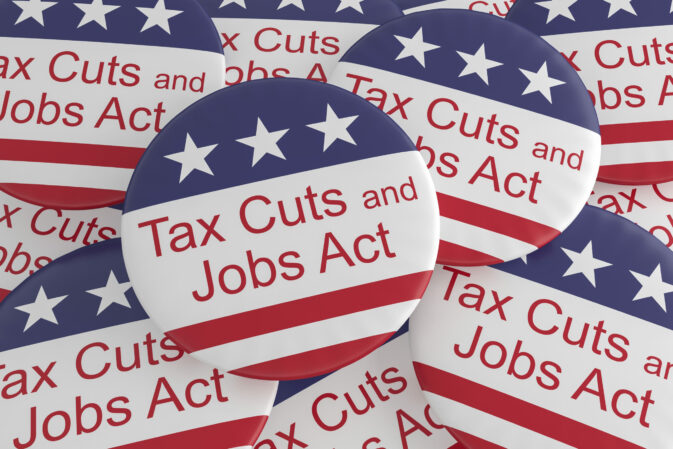Exclusive—Nicole Wolter: Tax Day Emphasizes Need to Make the Trump Tax Cuts Permanent

New Job Creators Network Foundation polling indicates this is no small task. Most small business owners spend at least 12 hours preparing and filing taxes, with one-fifth of respondents spending at least 36 hours. The hours and resources it takes small businesses like mine to file is time that otherwise could be spent making our businesses more productive and successful.
But things could get far worse in the years ahead with the pending expiration of the Tax Cuts and Jobs Act (TCJA). Taxes are already a headache. Lawmakers shouldn’t allow them to become a migraine.
For small businesses, the Tax Cuts and Jobs Act, which President Donald Trump signed into law in December 2017, was nothing short of transformative. Provisions, including a 20 percent pass-through deduction and immediate expensing, acted as a catalyst for main street. The elements encouraged capital investments and allowed entrepreneurs to keep more of their own money, with financial savings fueling job creation, wage increases, and expansion.
According to a Tax Foundation study, the TCJA is estimated to add 1.4 million jobs to the economy by 2025.
Thanks to the tax cuts, my small manufacturing company located just outside of Chicago was able to provide employees with bonuses, wage increases, and 100 percent paid health care. We were also able to expand capacity by purchasing new machines and hiring additional staff, contributing to a thriving economy that saw my state of Illinois’ jobless rate reach a record low in 2019.
Due to the economic boom the TCJA created, real wages grew at a record two-decade pace following the law’s implementation in 2018 and 2019. At the same time, blue collar workers were enjoying an outsized benefit—experiencing quicker earnings growth than their supervisors.
And despite doomsday predictions from the left, the TCJA ended up increasing government revenue rather than lowering it.
A report from the Congressional Budget Office (CBO) uncovered that on top of contributing to one of the strongest economies in half a century prior to the pandemic, the legislation corresponded with tax revenue levels that surpassed expectations by nearly $500 billion in 2022. Overall, since the tax cuts took effect, federal revenue is up $1.5 trillion annually.
If Congress doesn’t act, these tax provisions that benefit main street and subsequently create a rising tide that lifts all boats will end next year. Lawmakers must put aside partisan divisions and come together to do what’s right for small businesses and extend this tax relief.
Congress has already taken a good first step towards extending provisions of the TCJA.
At the tail end of 2023, the House passed the Tax Relief for American Families and Workers Act—a bipartisan package that would extend TCJA provisions that allow immediate expensing for research and development and business investments. The Senate should swiftly approve the legislation to make it easier for small businesses – especially manufacturers like my business – to expand and grow. But doing so is just table ante for broader legislation that extends the entire TCJA.
Extending the provisions of the Tax Cuts and Jobs Act may not shorten the tax filing process for American small businesses, but tax season drudgery will at least be a little easier knowing we’re saving money that can be reinvested into our businesses and communities for many years to come.
Nicole Wolter is president and CEO of HM Manufacturing in Wauconda, Illinois, and a partner of the Job Creators Network Foundation.




